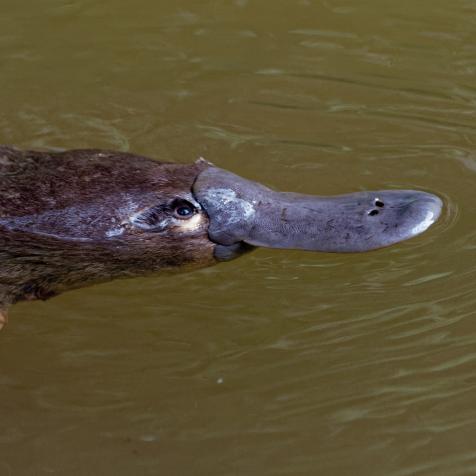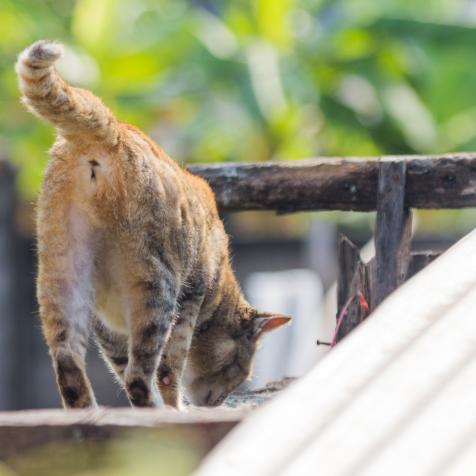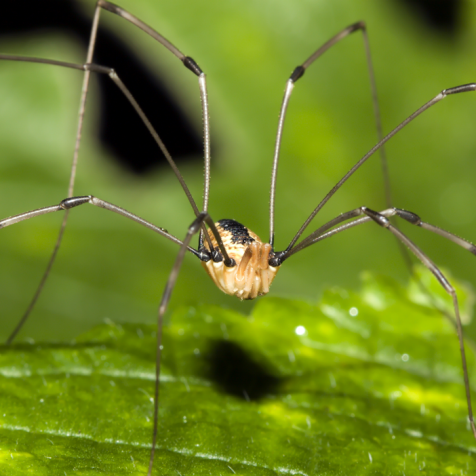
Bee Chicas
These Bee Chicas Are Colorado’s Local Heroes
Last year, US beekeepers lost almost 40% of their bee colonies. Four women banded together to help the bee population flourish in Colorado.
Back in 2015, the city of Boulder, Colorado, passed a resolution to eliminate the use of pesticides on city property. Many pesticides are lethal to bees, whose numbers are decreasing dramatically.
Last year, US beekeepers lost almost 40% of their bee colonies, which are vital to the planet’s ecosystem because they pollinate plants that produce around a quarter of the US’ food.
Back in Boulder, city officials were looking for a way to educate locals about the dangers of pesticides, and encourage the broader community to adopt best practices for bees. In response, four women, who had all been beekeeping for more than a decade, formed a group called Bee Chicas.

Bee Chicas
Bee Chicas aims to educate Colorado citizens about pollinators and conducts outreach to get locals involved in their initiatives.
“We focus our efforts on reaching as many people as possible through our community events, workshops and school visits,” explains Deborah Foy. “We keep our message positive and encourage people to adopt healthy practices by sharing our knowledge and love of pollinators and healthy, pesticide-free habitats and gardens.”

Bee Chicas
Bee Chicas is made up of Deborah Foy, Cynthia Scott, Tracy Bellehumeur and Theresa Beck, who all live in Boulder. The foursome partnered with the City of Boulder to create “pollinator appreciation month” in September, which includes speakers, movies and a bee boulder family festival as the culminating event.
“The festival draws around 700 kids and parents every year,” explains Deborah. “Various community organizations provide activities and games that educate kids about the importance of pollinators.”
Not only do the Bee Chicas run events, but they also managed to persuade their local library to start a beehive…on the roof. “Now they offer workshops, and they sponsor two additional hives,” Deborah adds. “We’ve even held Skype sessions from the roof of the library to let classrooms of kids take part (virtually) in a beehive inspection!

Bee Chicas
The workshops primarily target adults and include topics such as native bees and plants, honeybee biology and the role pollinators play in the food system. “Most people do not realize there are around 20,000 species of bees worldwide and Colorado has over 950,” Deborah continues.
“We built a large native bee hotel in a two-part workshop to provide habitat and highlight these incredible pollinators to the larger community. The hotel is a permanent installation and highly visible along a path next to the library.”
The group also visits elementary schools to share their message, and Cynthia says they especially love working with children and parents together.
“We like to bring them both into the conversation about how important whole ecosystems are for keeping the environment and thus our kids healthy. We teach a journal-making workshop with an emphasis on native bees and other pollinators and their interactions with plant communities. This class ends with observation and note-taking or drawing sessions in the new native plant gardens (and at the native bee house) at the Boulder Public Library.”
The Bee Chicas say the public’s response has been inspiring, with their workshops consistently full – and they’ve made such an impact that they were named hometown heroes in 2018.

Bee Chicas
Deborah describes one of the group’s favorite events, ‘Meet the Bees’, where children and adults can hold a drone bee, a male bee with no stinger. “It is wonderful to see people overcome their fear and watch their faces light up as the fuzzy bees walk on their hands. This hands-on experience can be so impactful.”
They’re hoping to broaden their outreach into elementary schools and support the city in creating more pollinator corridors.
“This is our little contribution to solving the bigger problems of climate change and human well being,” Cynthia adds. “Getting children to observe, touch and be in the natural environment is especially important.”


















